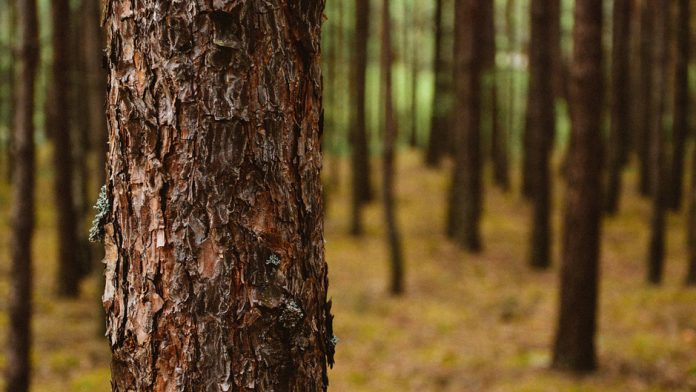It’s no secret that forestry is a huge source of wealth for Canadians. Forest products represent a large fraction of our international trade. We are proud of our amazing wood-based architecture. Canadians plant over half a billion trees each year. Forests and trees have huge benefits for our health.
Despite forest products being so important to our economy, tree bark remains largely a waste byproduct. After being stripped off the tree, bark is often either inefficiently burned for energy, or simply discarded.
As the outer layer of the tree, you can think of bark like a barrier similar to your skin – it protects the tree and has contains a lot of useful chemicals. It is lightweight, strong, and biodegradable. Bark even has antifungal and antioxidant properties, making it a possible source of new medicines.
This is where the Bark Biorefinery comes in. A collaboration between the University of Toronto, Lakehead University, and industry partners, this multidisciplinary team led by Profs. Ning Yan and Mohini Sain is looking for ways to transform this waste product into sustainable alternatives to chemicals derived from non-renewable petroleum resources.
If successful, this waste material could even go beyond the value of raw lumber.
Currently, the team is focused on two main product areas: green adhesives and bio-based foams. Bark has natural adhesive properties, and the could be purified into glues, or used to create a particle board without adding glues; given the right processing, the team hopes that the particles in a bark board would stick together on their own. Bio-based foams could replace synthetic petroleum-based foams in the construction and automotive industries. The team has already succeeded in using bark to replace bisphenol A (BPA) as the raw material to make epoxy resins. In the future, the team also plans to look at pharmaceutical applications.
Want to learn more about Canadian research in sustainable forestry practices? Check out Prof. Sally Aitken’s Orange Chair Interview.








































